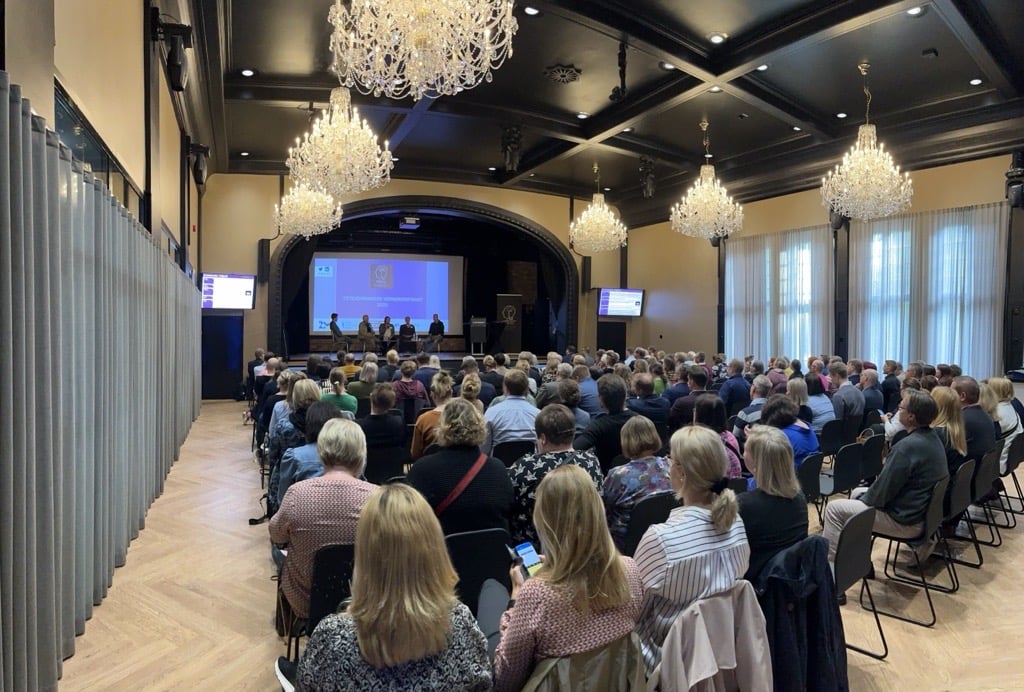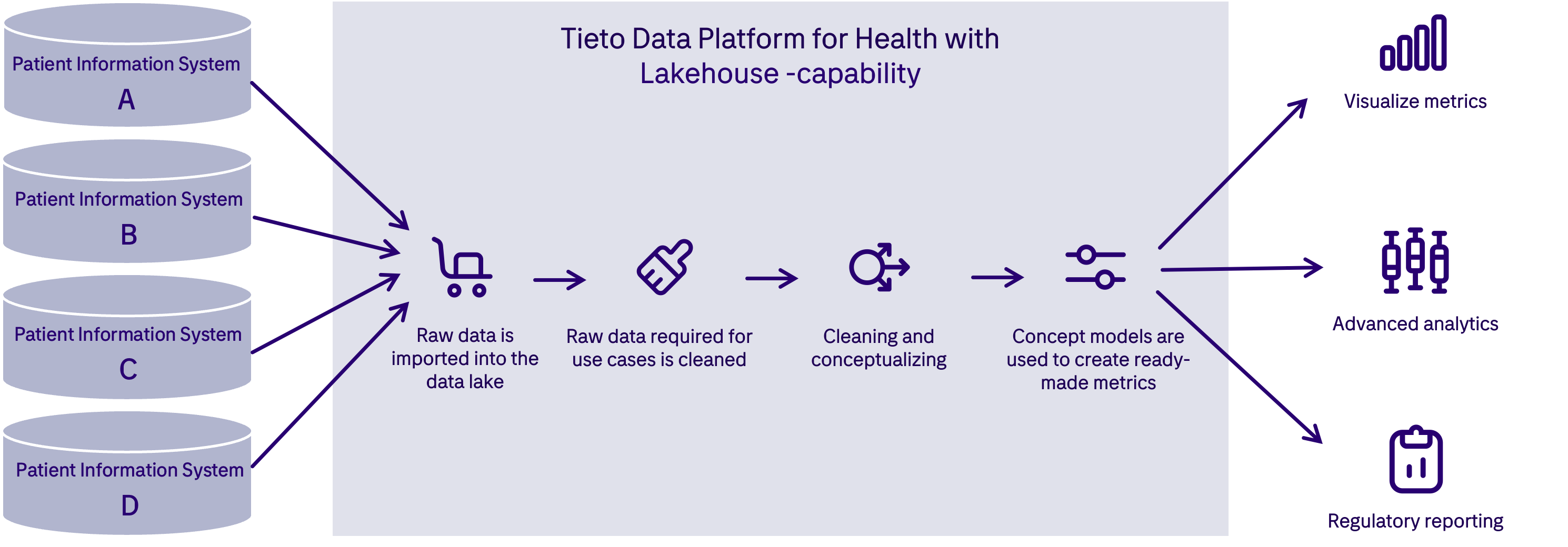Knowledge-based management refers to decision-making based on up-to-date and high-quality information.
Knowledge-based management refers to decision-making based on up-to-date and high-quality information. Its main idea is that the data collected from operations can be used to predict measures, cause-effect relationships and/or future effects. Much is expected of knowledge-based management precisely because it is hoped that it will help to make the care delivery system more productive.
At the same time, the development of technologies supporting knowledge-based management in the wellbeing services counties has been rapid. In addition to traditional reporting, a new generation of cloud-based solutions, such as data lakes, data warehouses, automation tools and reporting tools, have been introduced, with more and more world-embracing promises to solve the issues around data utilization. We went to Kuopio for the Knowledge Management Network Days (Tietojohtamisen verkostopäivät) to find out how to ensure coherent and effective services in the wellbeing services counties, what the most pressing issues are and how our offering meets the challenges of today and tomorrow.

Strategy is choices
The change will force the wellbeing services counties to find new, productive ways of organising services. The role of technology is undoubtedly one of the drivers of productivity, but it needs an appropriate strategy to be realized. Before we start working on the world, we need to be able to answer the following questions: What information do we need? How do we produce it? What are we trying to achieve with it?
The participants of the Network Days clearly shared the consensus that strategies should be more concrete and easier to implement at every level of the organization. The joint strategy should be in plain language and shared by both practical nurse in Utsjoki and the highest-level management at a regional central hospital. To do this, we must set meaningful milestones. It is better to start small and build on good experiences.
Fragmentation is not just a technological concern
The wellbeing services counties as organizations have existed only for less than a year. It is therefore entirely natural that their activities continue to take shape. It is easy to forget that fragmentation is by no means limited to technological details, such as the harmonization of systems. Fragmentation can also be seen more broadly in the management and culture of the entire organization. Similarly, when we must combine databases, we must harmonize practices.
There is no longer any room in the system for thinking: “This is the way we've always done it.” Not all change can be implemented immediately; we also need patience and time. In overcoming fragmentation, we return to strategy and meaningful goals.
Transparency builds trust
Transparency of information is the foundation of successful knowledge-based management. Data transparency allows decision-makers to access all the necessary information. This will help in making better and informed decisions.
The speakers at the Network Days stressed that the information used in management must be generally accepted. It is healthy to be sceptical about the information available. Therefore, it is worth investing in the transparency of information and its formation in the development phase. It is easier to trust information whose source, definitions and shortcomings are transparently stated. Even incomplete information is better than no information at all.
How does Tietoevry rise to the challenge?
In our opinion, the Knowledge Management Network Days highlighted an interesting trend: instead of looking at individual technologies, we have turned our attention to challenges at the organizational level. On site, we presented Tietoevry's newest attraction, the Lakehouse technology added to our platform and the knowledge management based on it. It provides the wellbeing services counties with an agile, real-time, and cost-effective way of processing data compared to traditional solutions. Data users will gain wide-ranging visibility into the information available in the wellbeing services county with the help of a data catalogue. The solution makes it easy to export the necessary information in the right format and at the right time to the right place.
Transparency of information and broad-based co-development have been the cornerstones of our development since the beginning. For data to be utilized to its full potential, it must be accessible to everyone and well described. You do not always have to reinvent the wheel, and in the event of a flat tire, it would be nice to have repair instructions available.
Lakehouse, which is built on a data platform, also responds well to the challenge of fragmentation. All data is integrated into a common platform, from where it can be utilized without a separate copy of the data. With Lakehouse, we have reached a point where technology and tools are no longer our biggest challenge, but instead we focus on organizing around them.

Became interested? Read more on data and analytics
Tietoevry Care, Data &; Analytics: Data, artificial intelligence and cloud services
Werneri Tuompo works as a project manager for knowledge-based management in healthcare and social welfare. Werneri has extensive experience in various data utilization projects, especially in data lake environments. Werneri's particular strength is his broad understanding of the ecosystem of social welfare and health care and, in particular, the utilization of data.
Aapo Pietiläinen works as Data Engineer in Tietoevry Care's Data and Analytics unit. Aapo has solid experience in data projects in the field of social welfare and healthcare. Technological curiosity and finding practical solutions are characteristic of Aapo.